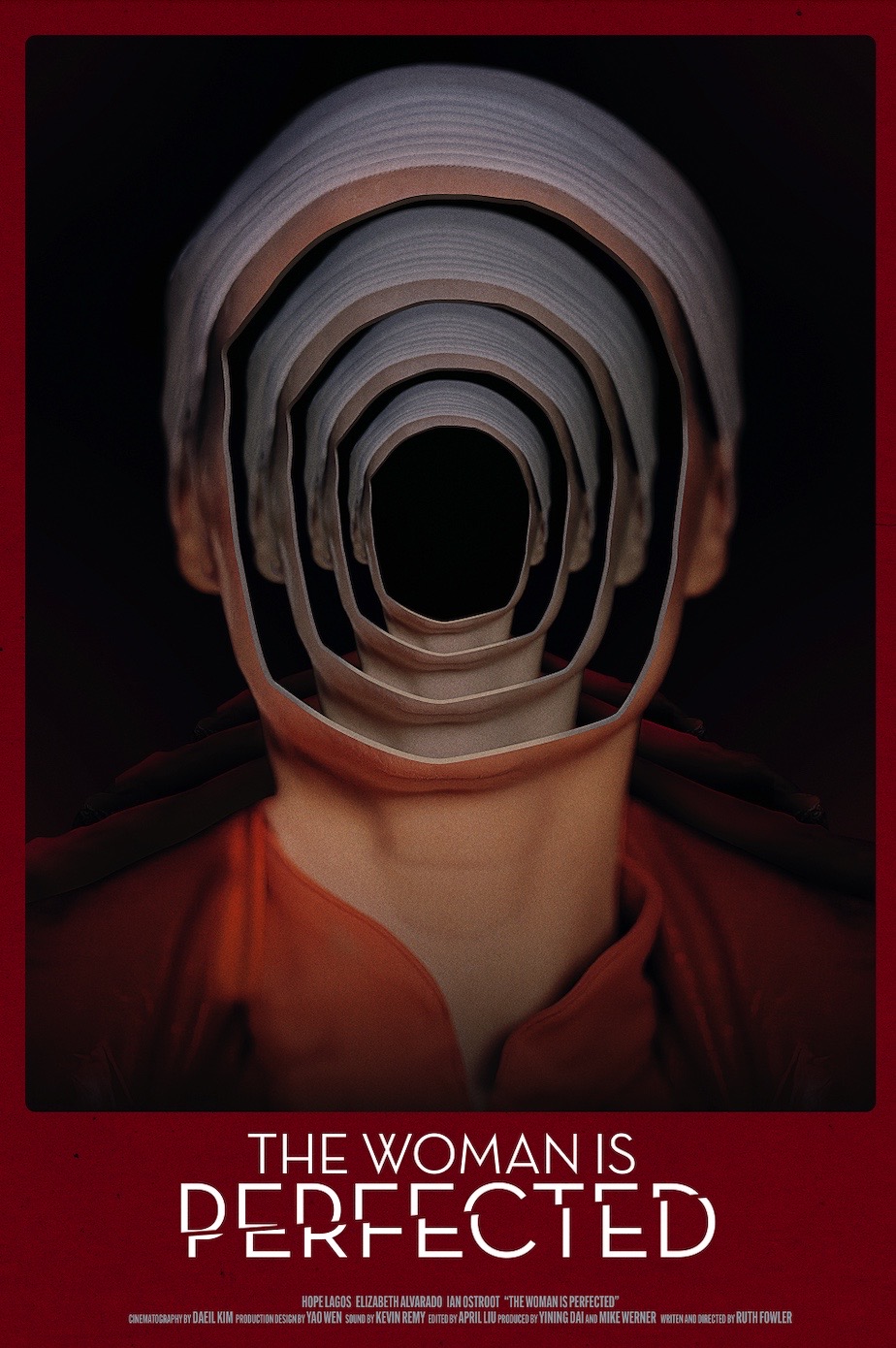

Today we’d like to introduce you to Ruth Fowler.
Hi Ruth, please kick things off for us with an introduction to yourself and your story.
I’m a writer and director working between the UK and USA. I’m originally from a tiny village in the mountains of Wales. I was kind of a weird, depressed, lonely kid in a huge, combustible family, and I took shelter in stories: from books, movies, TV, theatre, anything. Imaginary worlds were what made an intolerable reality a little more bearable. As soon as I graduated from Cambridge University, my parents left the UK and I ended up being middle class homeless – sleeping on friend’s sofas and floors because I couldn’t afford rent and didn’t have a job as a new graduate. I ended up working as a private chef and deckhand, trying to write the next big novel as I sailed around the world as a servant on rich people’s yachts. I was, believe it or not, Lisa Vanderpump’s personal chef on her yacht in Monaco just before she hit the bigtime. After working on yachts, I decided to move to NYC and commit to becoming a writer. It was a ridiculous idea. I had no money, no job, I’d been accepted at a couple of New York colleges – NYU, New School, Cornell – for an MFA, but didn’t have the funding to go and had received scholarships which were not going to cover much, so I’d turned those down. I knew absolutely no one in New York, and most importantly – I didn’t have a visa. This period in NYC was incredibly challenging – but I came out of it with a book, a movie script and an agent. I still think of myself as a New Yorker. I saw a side of that city that very few people get to see. I returned home to London and began to write for TV and Film in the UK. Eventually, I sold a mini-series to the BBC – Rules of the Game, which you can find on Hulu, and after this I adapted a novel into the new Paramount Plus show which dropped a couple of weeks ago: Little Disasters. Both of these experiences were rough. I was underpaid, working alone at home, I had zero contact with the directors, and no say in production at all, and felt pretty much like a secretary with very little creative voice. I realized I didn’t want to keep working away alone behind a laptop and emailing scripts over to people who got to have all the fun of making them. At the same time, my career in the UK was really struggling. I’d just left an abusive relationship, and my American ex refused to let me travel back to the UK with our son for work which basically brought my career to a standstill. I realized I’d have to transition my career over to LA asap. But how? No one, to be quite frank, really gives a shit about UK writers unless they have a hit like Fleabag, and while my shows were well received, they were not Fleabag (although the next one might be). I decided the smartest thing to do would be to apply to USC for my MFA in Film Production, with a concentration in Directing. I actually wrote the bulk of Little Disasters over my first and second year in the program, while also paying for my fees by teaching screenwriting at UCLA, writing freelance journalism, and assisting professors in the program.
I’m sure it wasn’t obstacle-free, but would you say the journey has been fairly smooth so far?
Nothing has been easy in my life. Obviously I have to take some responsibility for that – if you’ve ever spoken to me, you’ll know I’m incredibly direct and have zero tact. Thanks neurodivergence.
I do feel that as a woman I’m not allowed to be as confident, as assured, as outspoken about my talent as my male colleagues are. I was at Cambridge with so many men who have been propelled to international stardom. Dan Stephens was in the first film I ever made. I did Footlights with John Oliver and Richard Ayoade. Tom Hiddleston was dating my best friend. Jack Thorne and I argued about who was more left wing. Everyone was smart and talented at Cambridge – so how come the men are dominating our industry? I sat in classes with these guys, I acted with these guys, I wrote with these guys. They were fantastic. BUT WE WOMEN ARE TOO!
It’s clearly going to be harder to make an impact in TV & Film if you’re a woman, if you’re non-white, if you’re not a nepo-baby, and if you’re not rich. I’m unsure how to address this imbalance, but I know that I try to make my writing rooms and my sets as diverse as possible, and the stories I choose to tell are always left of centre.
I found leaving my UK career behind incredibly heartbreaking. I love London, I loved living there, all my friends were there, the industry was small and creative and fun. I was struggling for so many years trying to commute back and forth between LA and London as a new mum with no help and a very unsympathetic ex, and there was an incredible lack of support and sympathy. People do not want to know about your struggles, they want a complete page 1 rewrite in twelve hours flat, on their desk by tomorrow morning whether you’ve been up all night with a screaming baby or not. I was told by a fellow WGA writer, “Do not tell anyone in this industry that you’re a single mom,” and I would agree with that (whoops, too late). Now my son is older it’s a lot easier to leave him for a couple of weeks which I simply couldn’t before, but juggling a baby, a vindictive ex and a punitive custody order while trying to placate raging producers, late payments and uncaring agents was a dark, dark time. Not to mention in the UK we are paid per script, not with a salary, so we’re basically funding projects ourselves with our savings until we get paid. It’s a really hard system, and if you fall behind – say, by having to pay a lawyer for a crazy divorce – you suddenly find yourself funding projects with a credit card and falling into a deep, dark hole. It was frightening to put the brakes on my UK career and plunge myself into USC full time and accumulate a bunch of debt and have people ask “Why are you doing this?” for the millionth timE.
Weirdly, I’ve always been marketed as a ‘Creator’, not as a writer who staffs other people’s projects. I mean, clearly that’s flattering, but it does put extra pressure on me to create an entirely new show or movie in order to generate income. I’m totally down to work on other people’s shows! I’m fast, I’m efficient, I’m great at picking up an established tone and generating plot! Just putting it out there.
Alright, so let’s switch gears a bit and talk business. What should we know about your work?
I write a lot about power, consent and dark, complex female characters. Everything I write, even drama, is very funny. My irreverent British humor gets me into a lot of trouble so I’m learning, as fast as possible, to STFU, or better – to save it for improv at Groundlings, where I train. I’ve been told my writing tone is very ‘Succession’ like. My first book was about the seedy underworld of New York stripclubs. Then I wrote a play based on a real Craigslist ad I used to see in NYC all the time – “Free rent for woman who is ok with walking around in her underwear”. That played for several months at Rogue Machine Theatre, which is an incredible institution in LA. I’m in post on a dark, comic short I wrote and directed about a woman who gets obsessed with plastic surgery, and I’m trying to finish a comedy feature I’ve been working on for a year and would like to direct. I’ve also been working on a feature length screenplay about post-separation abuse – even that’s funny! A little.
I’ve written everything from big soapy gorgeous psychological thrillers, to old fashioned murder mysteries. I love the challenge of working in different genres. Working in TV is fun as there’s more leeway for writers to move between, say, writing Bojack, and writing The Bear. I’m always going to be a writer, and that’s what I’m known for. But I’d obviously like to move into directing professionally as well. While I work on my own weird, arty projects, I’d love to keep writing and directing – especially on large, commercial, super successful shows. I’m a huge fan of The Pitt – who isn’t? It feels like a throwback to the golden age of TV. I even trained as an EMT so if an opportunity came up on that show I’d be ready.
Do you have recommendations for books, apps, blogs, etc?
I really like Jeff Melvoin’s ‘Running the Show’, and Niceole Levy’s ‘The Writer’s Room Survival Guide’ as resources for TV writers. I always recommend those to students. I dip in and out of writing podcasts like Scriptnotes. But I love reading longform articles in The New Yorker, New York Magazine, The Atlantic and more to generate ideas for work. I wrote a short last year loosely based on an advice column in The New York Times. I love podcasts too. This American Life. Heavyweight. Typical murder stuff – I wish I could listen to Serial for the first time all over again. For directing ideas, I use an AI app called Flim.ai which has a great stock of film stills which are really useful. And when I see a shot and want to know how to recreate it, I can usually find someone on YouTube who can tell me.
Contact Info:
- Website: http://www.ruthiorio.com
- Instagram: @ruthioriofilm
- LinkedIn: https://www.linkedin.com/in/ruth-iorio-fowler/
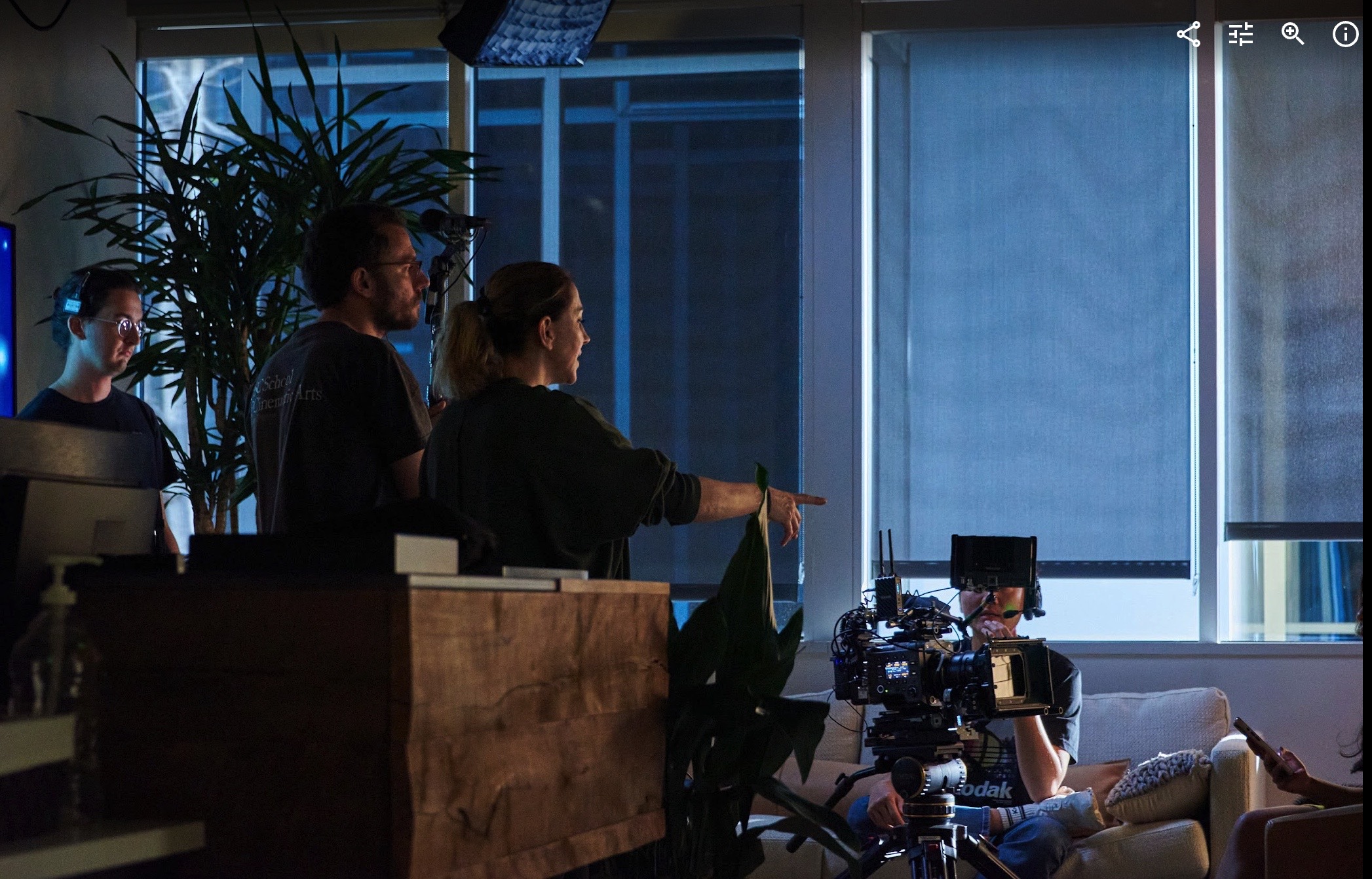
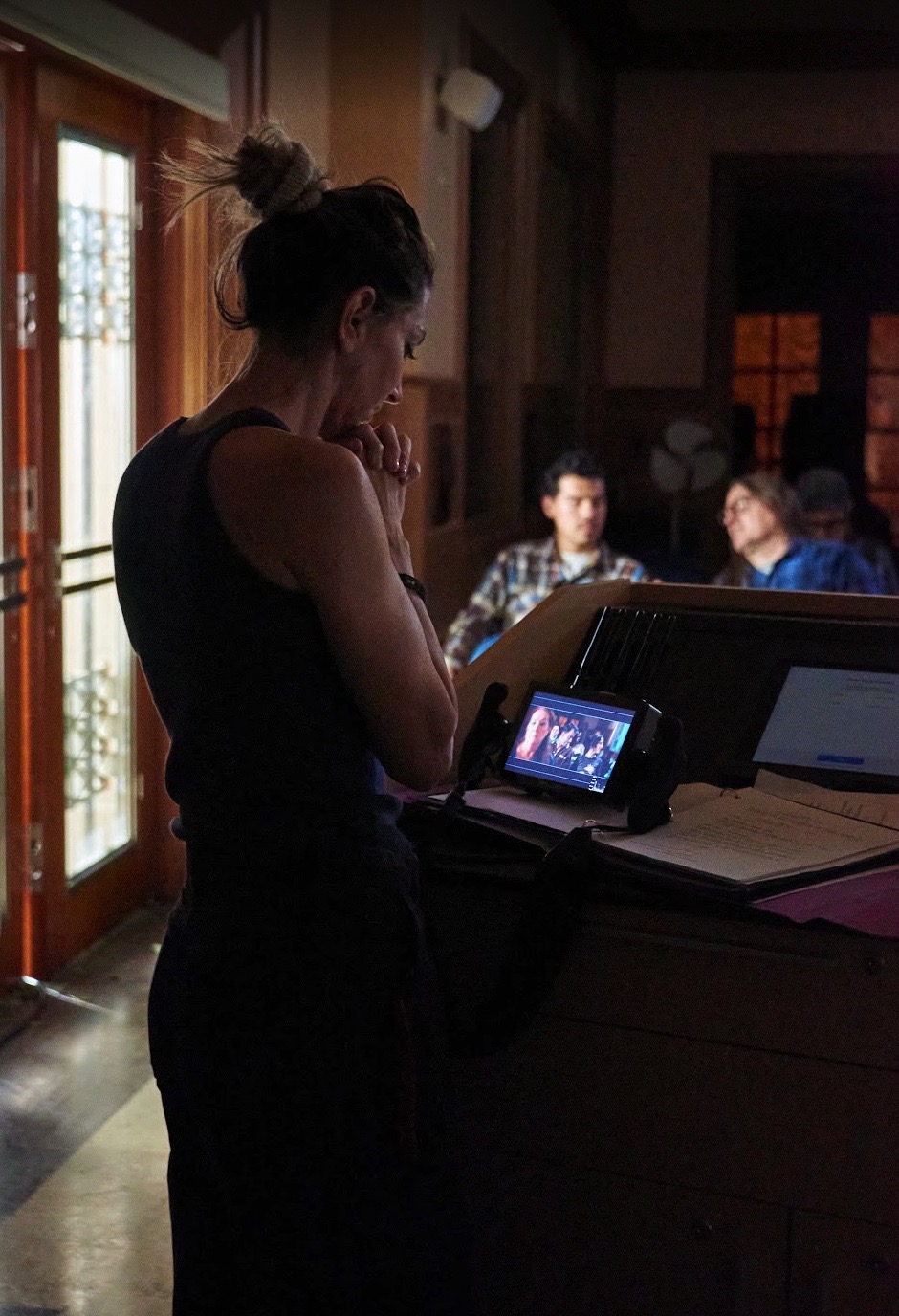
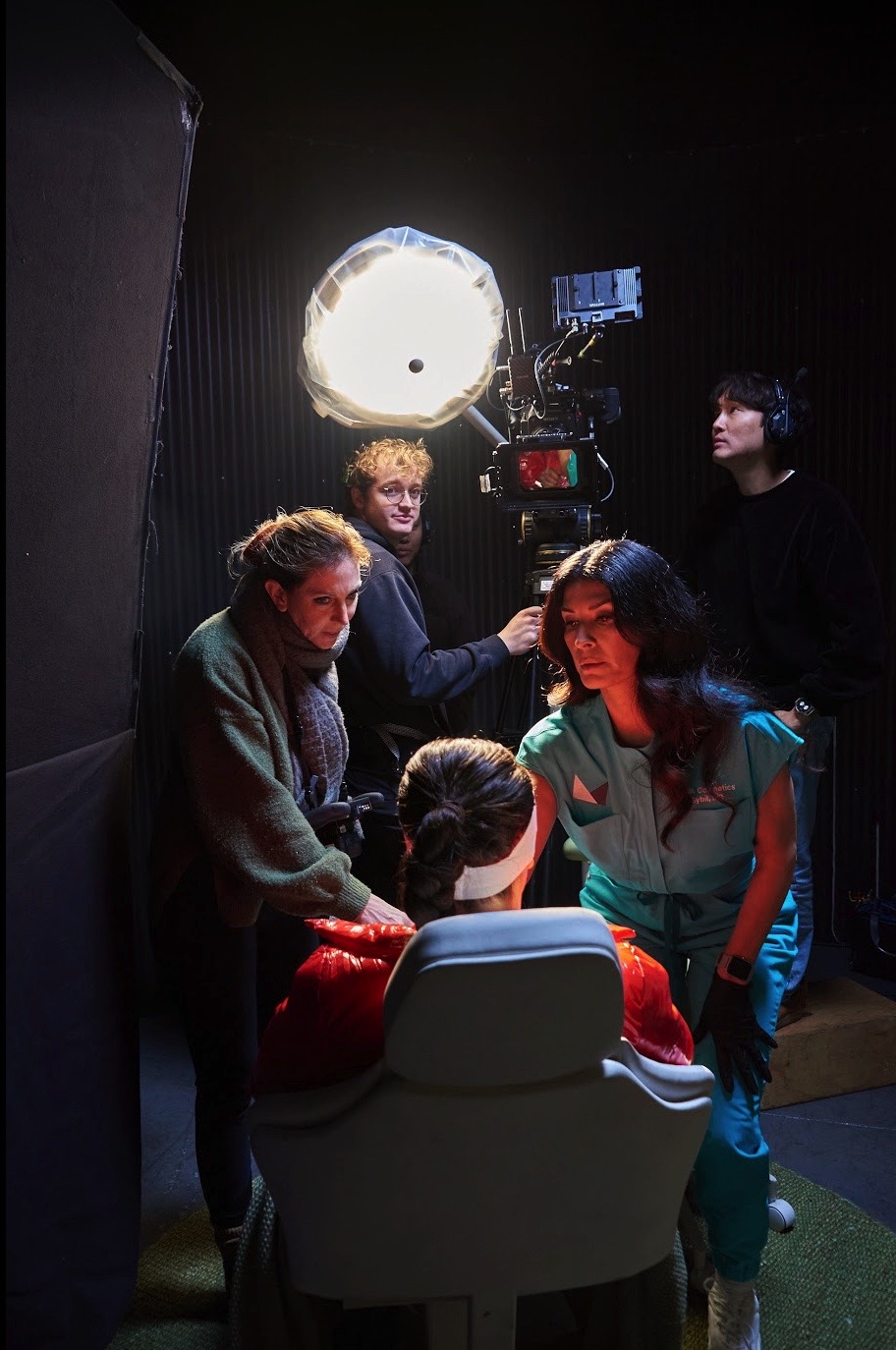
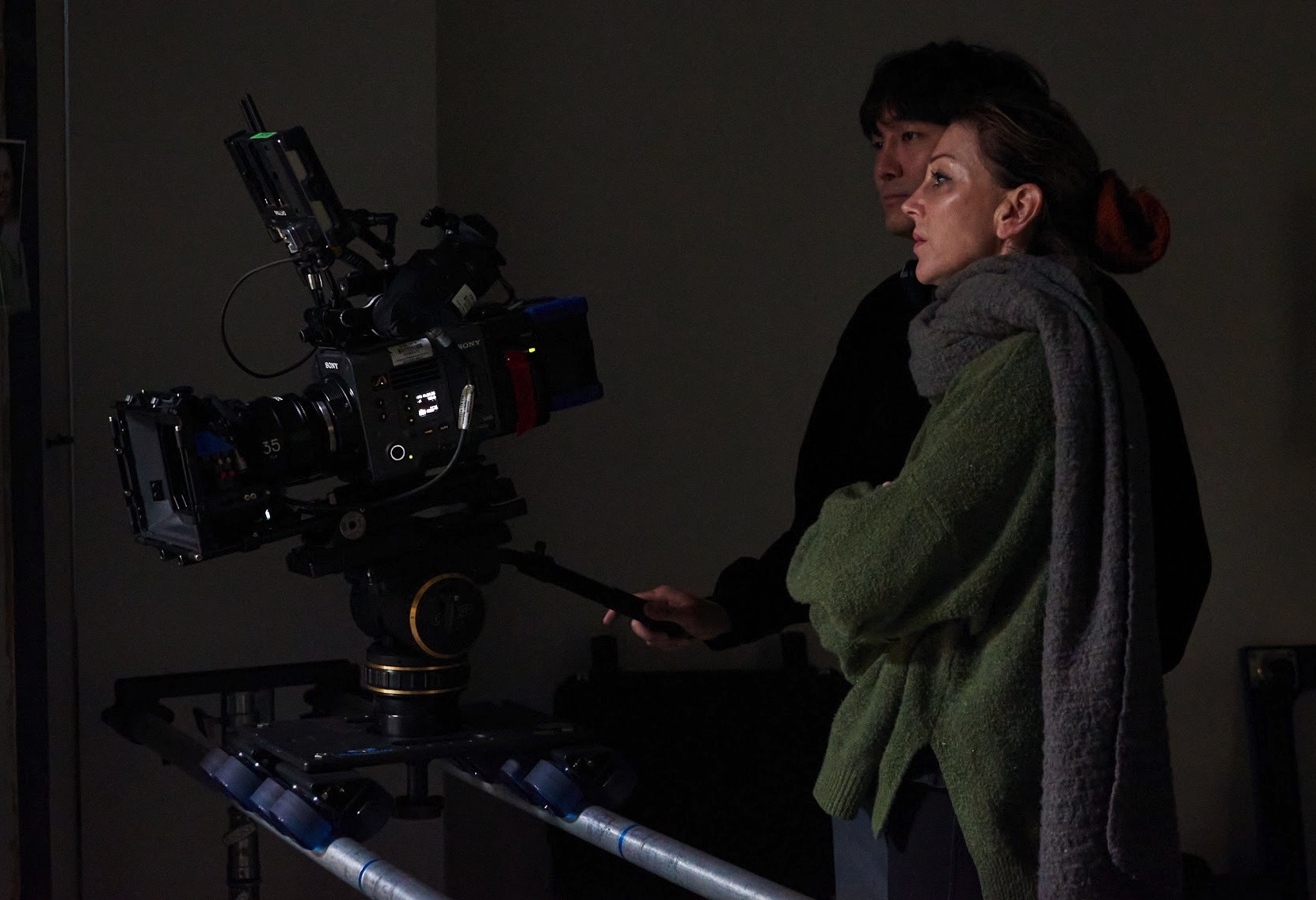
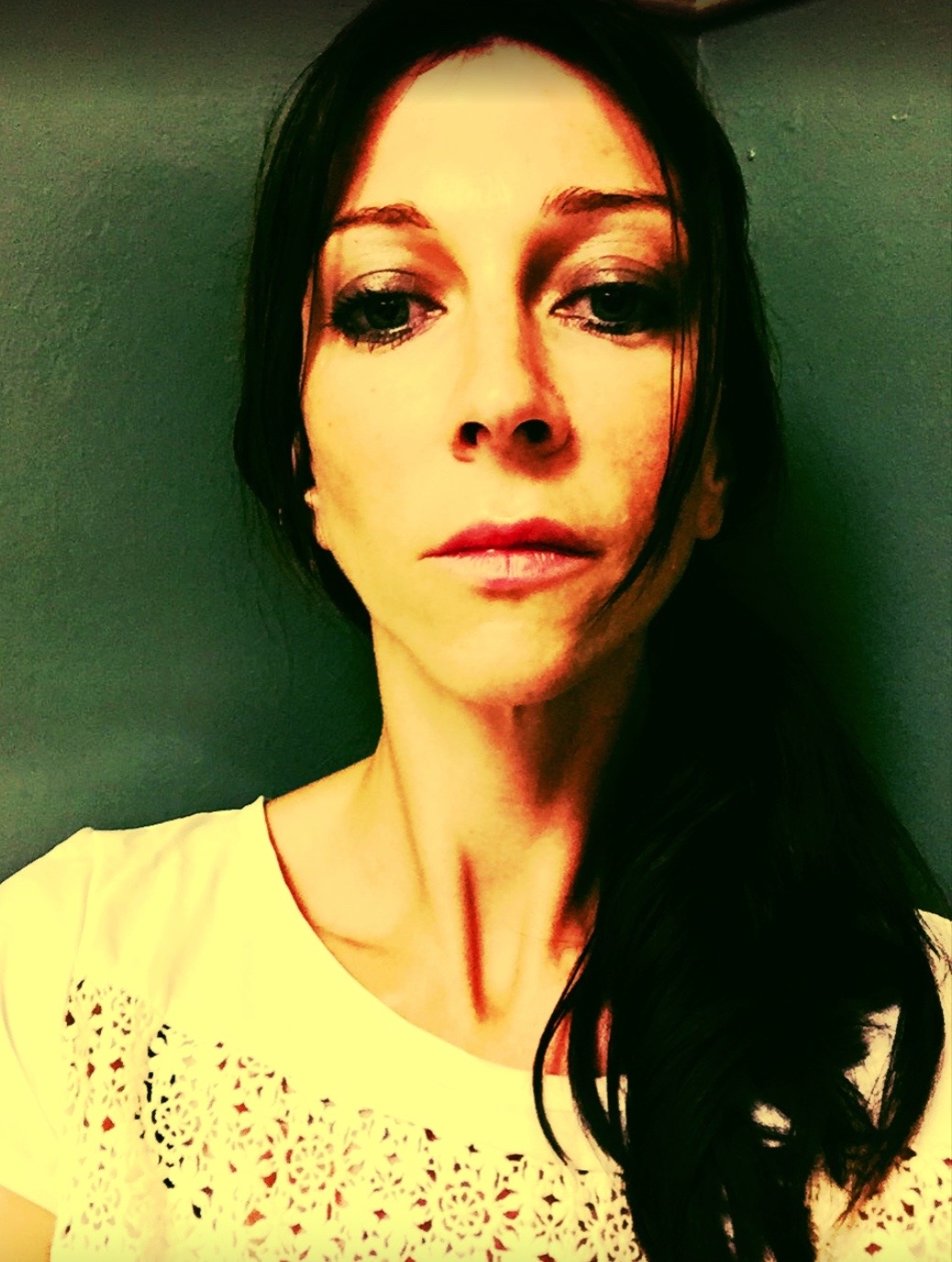
Image Credits
Movie Poster by Big Picture (@big_picture_co)
All other images by Grace Graves (@graceg_photography)














